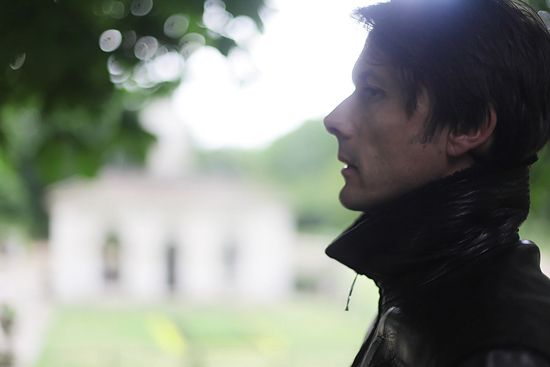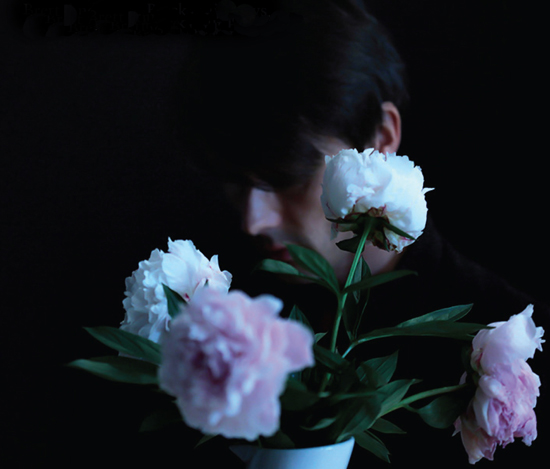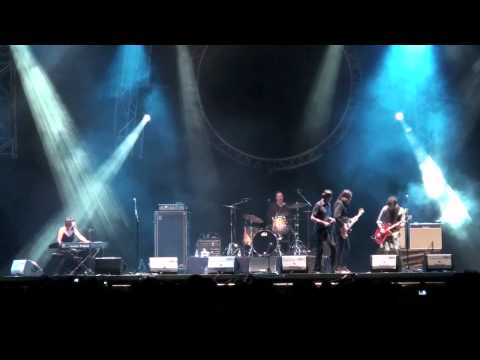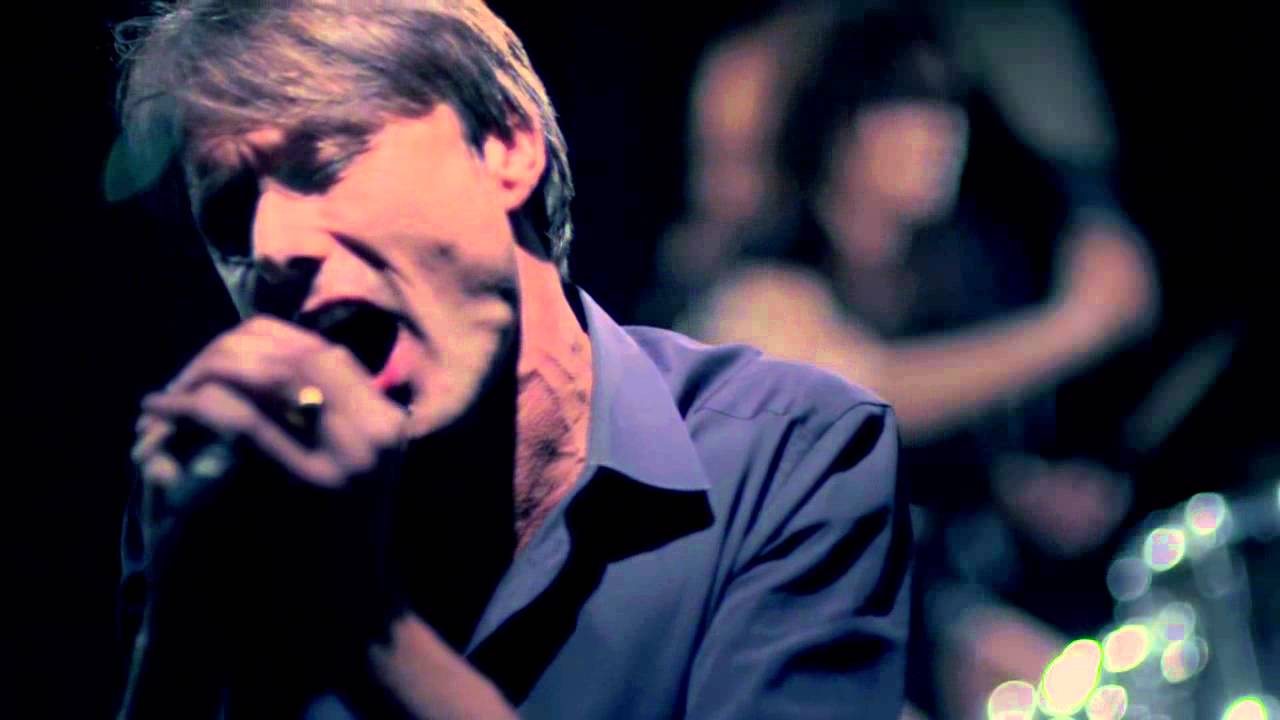Earlier this year, the Quietus went round to Brett Anderson’s house to discuss his new album Black Rainbows, and to find out about his favourite albums of all time. The fruits of that second discussion will be on the site shortly, but first of all we’ve got Anderson talking us through his fourth solo album track by track. After the folk and acoustic influenced first three solo records, culminating in excellent 2009 LP Slow Attack, Anderson decided that what would become Black Rainbows would see him return to working with a full band. Having said that, he used a unique approach at the suggestion of long-time collaborator Leo Abrahams. "I went to Leo and said I want to make a totally different record. I want to make a record that sounds like a band playing, not like it’s been made in studio with a load of odd instruments," Anderson explained "I want it to feel dynamic and live. He suggested doing it as an improvised session and not writing any songs before we went into the studio. I looked at him and thought you’re fucking mad, that’s not how records are made. I’ve never made a record like that before, I’ve always really carefully prepared stuff and write stuff, I thought how the fuck are we going to do that?
The answer? "We went into Moloko Studios down in Borough. It was me, Leo Abrahams, another guy called Leo Ross who plays guitar and bass with the Big Pink, and Seb Rochford, who plays with Polar Bear. Amazing drummer, and amazing hair. It was us jamming for three days. It was me in the control room, I wasn’t playing any instruments I was just sitting there… I had this strange role, I was a sort of tastemaker. I’d say this is the sort of thing we want to do. I had a load of records that I had as starting points, Public Image, Siouxie, a couple of Horrors things, that kind of feel, the post punk niche, or Nico. I’d play snippets of things. Because they’re very good musicians I didn’t want them to copy anything, I wanted the spirit to be there. So the version would mutate and mutate and become their own thing, we’d finally get somewhere and I’d say we’ll stop there, we need a new section now. That’s basically how the new record was made." Was this Brett Anderson pushing himself out of his comfort zone? "Absolutely. The starting point was so radically different it gave it a really different energy."
"I like the duality of it, there was something that struck me about the contrast," says Brett Anderson of the title for his new solo album, and finest work since Suede’s 1990s peak. "A lot of this album was written in this atmosphere… a friend of mine killed himself when I was writing the album, and it very much affected me. Black Rainbows seemed to reflect something of the element of grief, but also the celebration of someone’s life. When someone dies there’s that duality, that sadness but also the happiness as you remember the good things about them."
‘Unsung’
I remember when we were jamming that they just hit on this groove and I knew right away that it was going to be the first song on the album. It’s actually my favourite song on the album, it’s a weird one because it’s not as immediate as some of the others, but it really sinks in after a few listens. It’s quite challenging, the rhythm section. A couple of people have said ‘oo, that’s a bit clattery’, but I like that – it’s not a pleasant little intro, it’s all over the place. The chords are really simple, but they’re placed over quite a complex rhythm section. The vocal is interesting too, it doesn’t sit in a grid, it starts at different points in the chord sequence, so there’s always the sense that it’s moving forward.
‘Brittle Heart’
This one was inspired by ‘Rise’ by Public Image. We were trying to do something with that feel, the groove. It’s quite a krautrock feel too, that motorik sound. We were listening to a lot of those sorts of bands, like Faust, that was one of the many reference points. I think John Lydon was referencing that too, so it’s all part of the same soup. I suppose we did make a very English pop sound out if it. "Carpet burns and antiseptic skies": I like to use phrases that make people prick up their ears, and that was something thrown in there that adds a little bit of spice. I love the feel of the song, it reminds me of something like ‘Union City Blue’, an atmospheric, big, emotional thing. Something like ‘Heroes’ as well. I’m proud of that one, it came from nowhere. It’s been weird with writing these songs, because when we were jamming in the studio there were a couple that I thought ‘wow, that’s going to be amazing’ but they didn’t come to anything, and others where I thought well that’s OK, but somehow when I wrote something to it it created a new life. And that’s what happened here, the vocal melody made sense of it. That was the lottery of writing like this, you never know what it’s going to be like until it’s finished. Sometimes the music was quite blank in the background and the vocal takes it somewhere, at others there was so much going on that the vocals would have to act around.
‘Crash About To Happen’
I think this is the poppiest track on the album, and for a while I wasn’t even sure if it should be on there. I wrote it and thought I don’t know what to make of this, this isn’t the sort of song I wanted to write for the album, it just came out. I just decided that there was something about the feel of it that I did like. I suppose there’s an 80s indie thing, there are elements of The Cure in there. I quite like the lyrics too, it could almost be a song about a friend whose life is just about to hit a brick wall, but I like that there’s a duality that it could apply to Lindsay Lohan or Britney Spears, this sense you’re reading the horror story unfolding before you.
‘I Count The Times’
It’s a big, cold synth. I didn’t want any strings on the record, I wanted it to be electric guitar, bass, drums and keyboard. There are no session players beyond the guys who were there jamming. So it was almost 80s, cheesy synth that really pokes through. Thinking about The Horrors, what makes them interesting to me is how they use synths, because they are a really good rock band but it gives it another dimension. The parts are beautifully done. I think in Suede we overused the high synth sounds, though you’ve got things like ‘Europe Is Our Playground’ where the synths are really beautiful, but the Horrors combine synths and electric guitars really well.
‘Exiles’
This is one of the later tracks that wasn’t part of the original ones Leo gave to me. We went back in and I said actually, this one’s great. We should do something with this, it’s got a great feel. So I wrote something really angry and I suppose for me it’s the most intriguing little glimpse into a relationship out of the whole thing. I really like some of the lyrics: "Your hatred is weakness and your carelessness is no mistake". Melodically, it reminds of something like Interpol. It was definitely really good fun to write a nastier song again. I think anger is a really important part of what I do as a performer, there’s got to be an element of anger. I’m really looking forward to playing that one live.
‘This Must Be Where It Ends’
I think one of Suede’s best skills is that we managed to write songs like ‘Pantomime Horse’ and ‘To The Birds’ well, they were never just boring ballads, there was another element that we did well. I think this is another one of those songs. It’s another of my favourites. Like a lot of the songs on the album it’s about suspicion and infidelity and all of those elements creeping in. I like the way the chord sequence works against the rhythm track, you expect it to stop in a certain part of the barre and it doesn’t. You get the sense that there’s something slightly wrong with the music, and I like that. It makes you a bit confused about it’s what it’s doing. It’s not just straight.
‘The Actors’
I think this is the closest to Suede dynamically, though it doesn’t sound like Suede, but it has the big chorus and that kind of feel. We did quite a lot of re-recording on this because it was in the wrong key. That was the thing about doing it like this – once I’d started writing the songs, this was the only one that was in the wrong key and we had to go back and re-record some stuff on top of the drums.

‘In The House Of Numbers’
This reminds me of the Stone Roses, a John Squire riff. It’s got that 80s alternative sort of thing. I don’t really know what it’s about. I’m slightly intrigued by class, and people marrying into class, and all of the intrigue and drama that creates, when you become part of a family that you weren’t born into. So I wrote a fantasy piece about someone marrying into a family name, and the sense that you’re always an outsider. It’s always there isn’t it? There’s no such thing as a classless society, it’s a complete fiction. People need hierarchies to have a sense of where they’ve come from and where they’re going to. It’s a natural part of mankind’s need, like it’s a natural part of mankind’s need to gravitate towards religion because you need to feel a power that’s in some way bigger than yourself. Whether it actually exists or not is irrelevant.
‘Thin Men Dancing’
Again there’s nothing as tangible as the last song, in terms of the lyrics, but again it’s picking the scabs of relationships, and exploring their murkier corners. It’s a bit of an off the cuff one, this, it somehow just worked as a song. I liked the simple, rock power of it.
‘Possession’
Like ‘Exiles’ it was one of the later ones we found in amidst all the other stuff, but as soon as I reheard it I thought we’ve got to do something with this, it’s going to be great. I really wanted to end the album with something quite epic. ‘This Must Be Where It Ends’ is obvious lyrically, but it didn’t feel like a closer somehow, but ‘Possession’ did. I wrote this thing into it, I had this realisation, and it might be really immature of me to have it so late, but it was my realisation, that it doesn’t matter how much you love someone you never really own them. That’s what that song is about really, that no matter how close to someone you are, you never possess them entirely.





